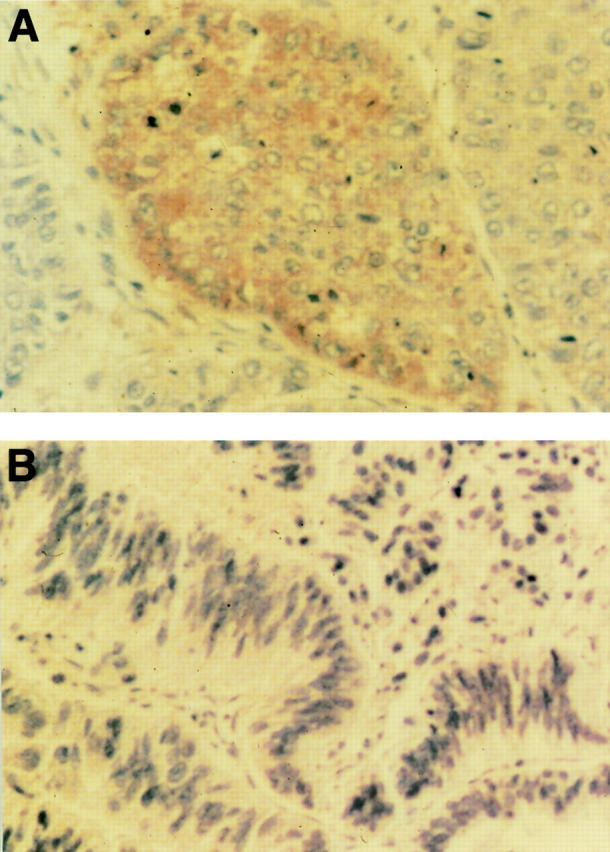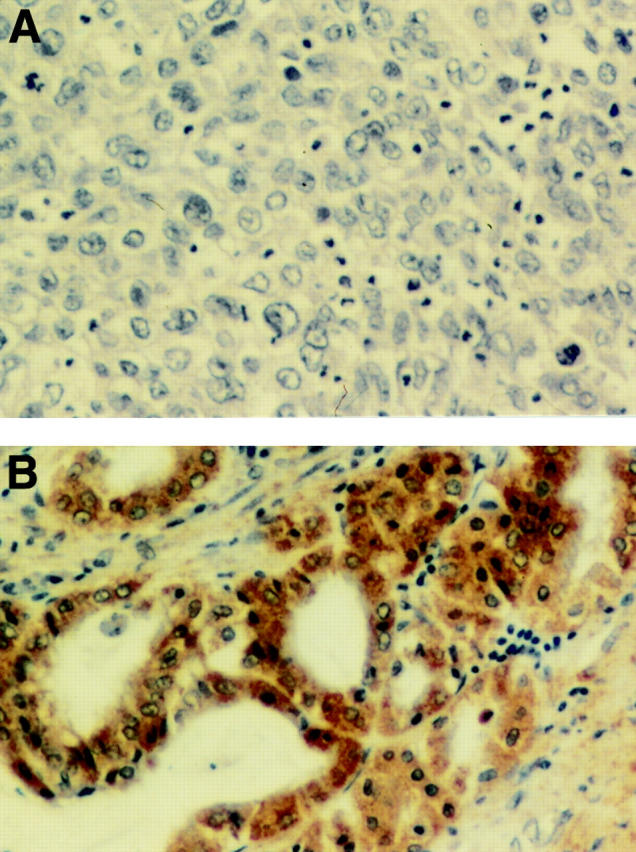Abstract
Synchronous cancers of the oesophagus and stomach diagnosed in a patient showing pronounced leucocytosis were examined for production of granulocyte colony stimulating factor (G-CSF) and expression of G-CSF receptor. Whereas enzyme immunoassay of tissue extracts showed that the oesophageal carcinoma produced G-CSF, the gastric cancer did not. However, the gastric tumour showed G-CSF receptor expression on immunohistochemical examination of sections. These findings suggest that the oesophageal cancer promoted gastric cancer growth by paracrine mechanisms involving G-CSF. Keywords: cancer; gastric; oesophageal; stomach; granulocyte colony stimulating factor; receptor
Full Text
The Full Text of this article is available as a PDF (99.6 KB).
Figure 1 .

The tumour cells of the oesophageal carcinoma showed staining for monoclonal antibody against granulocyte colony stimulating factor (G-CSF; 4A6) in the cytoplasm (A), but those of the stomach did not (B).
Figure 2 .

The tumour cells of the oesophageal carcinoma showed weak staining for polyclonal antibody against granulocyte colony stimulating factor (G-CSF) receptor (C-20) (A) compared with excessive expression on those of the stomach (B).


